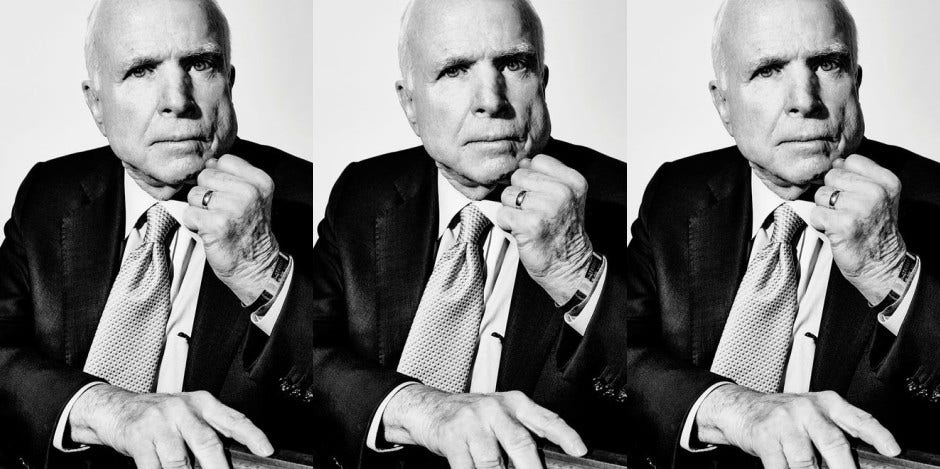How Serious Is Glioblastoma? The Truth About John McCain's Type Of Brain Cancer
Sending positive thoughts to the Senator, a true warrior.
 NY Mag
NY Mag Republican Senator John McCain has been diagnosed with one of the deadliest forms of brain cancer.
In a statement released by the Mayo Clinic on Wednesday, doctors said they discovered the cancer while surgically removing a blood clot from above the senator's left eye.
"Subsequent tissue pathology revealed that a primary brain tumor known as a glioblastoma was associated with the blood clot," the statement read. "The Senator and his family are reviewing further treatment options with his Mayo Clinic care team. Treatment options may include a combination of chemotherapy and radiation."
Though the 80-year-old is reportedly in good spirits, this type of brain cancer is very serious. According to the American Brain Tumor Association, glioblastomas are usually highly malignant and can be very aggressive.
Symptoms the senator is likely experiencing include headaches, nausea, vomiting, drowsiness, weakness on one side of the body, memory, speech difficulties, and visual changes. That could explain his confusing line of questioning in the hearing of FBI Director James Comey.
He's quoted saying, “You’re going to have to help me out here. In other words, we’re complete, the investigation of anything former Secretary Clinton had to do with the campaign is over, and we don’t have to worry about it anymore?”
The standard prognosis for adults with glioblastoma is 2-3 years, however, if it's a more aggressive form, it can be as short as 14 months. But a study in 2009 reported that 10% of patients may live five years or longer, so not all hope is lost.
But even with treatment, the tumor almost always grows back in less than a year, requiring more surgeries to remove it. Because of that, glioblastoma is almost never cured.
McCain is not the first politician to suffer from the tumor. Senator Edward M. Kennedy died of glioblastoma just 15 months after he was diagnosed in 2009, and Beau Biden, the son of former Vice President Joe Biden, died of it in 2015, nearly two years after diagnosis.
A new drug that could fight glioblastoma was announced by the National Foundation for Cancer Research last year. The doctors behind the new treatment combined it with radiation and have found "profound survival benefits" in pre-clinical models.

It's unclear what treatment options are available for McCain, but miracles have happened before.
When President Jimmy Carter was diagnosed with melanoma that had spread to his liver and brain in 2015, his future looked incredibly grim. But thanks to a new kind of medication that trains the immune system to fight cancer tumors, Carter is now cancer free.
The drug, pembrolizumab, is mainly given to melanoma patients, but in August of 2016, early clinical trials involving the drug and McCain's form of brain cancer were announced and appear to be promising.
Out of the 11 patients studied, four survived for more than five years.
This isn't the first battle McCain has had to overcome. The senator has a history of melanoma, an aggressive form of skin cancer, and during the Vietnam War, he was held as a prisoner by the North Vietnamese for almost six years.
Even though he was tortured and held in solitary confinement, he declined early release until prisoners who had been captured longer than he had were let go.
Our thoughts and prayers are with this strong man and his family.

